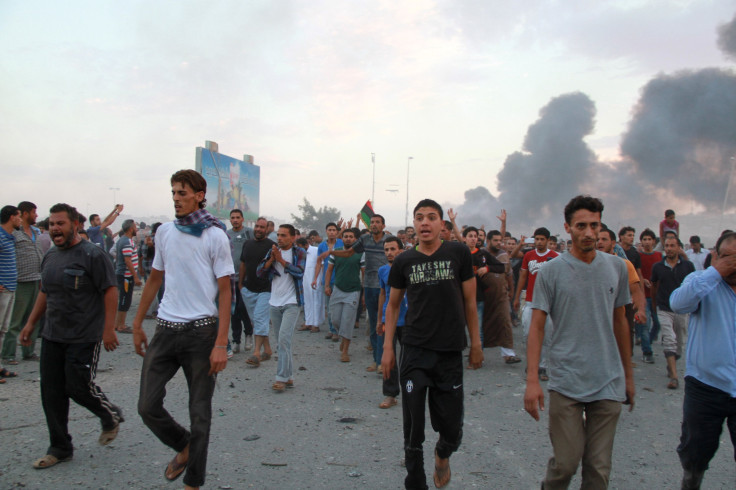Egypt Says Its Warplanes Are Bombing Islamist Militias In Libya

Egyptian warplanes Wednesday began bombing Islamist militias in Benghazi, Libya, the first time in decades the most populous Arab nation has used its aircraft to intervene militarily abroad, the Associated Press said. The planes are being flown by Libyan pilots, according to comments by Egyptian officials to the AP.
Despite the AP report, Egypt's presidential spokesman Alaa Youssef told Al-Ahram's Arabic news site that the report was "completely untrue."
MORE: Egyptian officials say country's warplanes are bombing Libyan militias' positions in Benghazi: http://t.co/tITnf5OrPH
- The Associated Press (@AP) October 15, 2014#بنغازي الان 6:15pm pic.twitter.com/8sv2xISR1S
- LIBYA Live ↻ (@mbi3000) October 15, 2014Ansar Al Sharia Commander to AP: "The Egyptians are bombing us day & night...We have photographs of the Egyptian warplanes & naval forces."
- LibyaAlHurra (@LibyaAlHurraTV) October 15, 2014Libya’s military has become fractionalized since the beginning of revolution that overthrew Moammar Gadhafi. Various financial backers have sent resources to specific groups in the military to give them an advantage over rival factions. On Monday, several Libyan military units, including a special forces group, said they would join Hifter in his fight against Islamist militias in Benghazi. Other military units, meanwhile, support Libya’s Tripoli-based government rather than Hifter.
Earlier this year Hifter began waging an insurgency dubbed Operation Dignity in Benghazi in an attempt to rid the country of Islamist militias. The fighting began in May when military forces loyal to Hifter launched an attack in Benghazi, using planes and helicopters to attack state-funded militias. In the following weeks, Hifter’s troops attacked parliament buildings in Tripoli. The violence caused several countries to close their consulates.
© Copyright IBTimes 2024. All rights reserved.





















